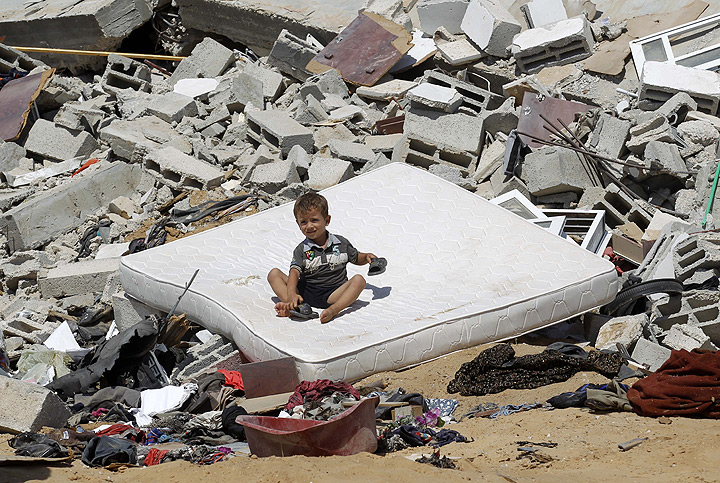Ottawa is refusing to bring injured children from Gaza to Canada for treatment, despite pleas from hospitals, health-care workers and the Ontario government.

It’s too risky to transport injured children and keep them away from family, Foreign Affairs spokesperson Adam Hodge via email. He said Ottawa’s “exploring” other kinds of aid but wouldn’t say what that would entail or when it would materialize.
In the meantime, Izzeldine Abuelaish can’t believe anyone would refuse to help a hurt child.
“It’s an ethical responsibility to jump and to give help in times of need,” he said, urging the federal Tories to imagine Gaza’s children as their own.
“What do they expect… people to do for them? For someone to say ‘No, I’m not treating your son or your daughter?’”
READ MORE: Israel, Hamas resume fire after 3-day truce
Abuelaish, a Palestinian-Canadian doctor now at Toronto’s Dalla Lana School of Public Health, asked Ontario Health a week ago to make resources available in the province for children injured in the conflict.
Abuelaish’s three daughters were killed in 2009 when his home in Gaza was struck by an Israeli shell. He established Daughters for Life in their memory.
As legions of the injured overwhelm Gazan hospitals there’s too many of them for neighbouring countries to treat, Abuelaish says. So Canada must step in.
“If we are determined to bring them to Canada, it’s only an airplane.”
- ‘Bacterial vampirism’: Deadly pathogens attracted to human blood, study finds
- Shoppers faces proposed class action over claims company is ‘abusive’ to pharmacists
- Most Canadian youth visit dentists, but lack of insurance a barrier
- Budget 2024: Liberals look to offset drug plan cost with higher smoking, vaping taxes
And he is determined: Airplanes are ready, he says.
READ MORE: Brantford woman trying to get 8-year-old daughter out of Gaza
His plan is to bring 100 children – in stable condition, so they can withstand the long trip – from Gaza to Ontario for medical treatment.
Only children who’d benefit from Canadian medical care – those in need of orthopedic care or plastic surgery, or with nerve or vascular injuries – would be brought over. He’d partner with the World Health Organization to determine who would benefit most from the journey.
And each child will be making the trip with a companion – a mother or a father for support. They’ll return home once their treatment is finished. There is potential for a team to visit the children in a year to follow up, but nothing has been finalized yet.
Abuelaish says ordinary Canadians have stepped up and offered the children a place to stay while they are undergoing treatment.
Ontario Health Minister Eric Hoskins said in a statement there is a “moral responsibility” to provide assistance to children injured in conflict zones.
Hamilton Health Sciences, Kingston General Hospital, Children’s Hospital of Eastern Ontario, The Hospital for Sick Children and London Health Sciences have all said they support Hoskins’ decision.
READ MORE: Ontario will treat children injured in Gaza, Health Minister says
But Ottawa is not on board.
The Department of Foreign Affairs is “exploring options” about the best ways to deliver aid on the ground in Gaza – for example, “increasing the capacity” of local hospitals or sending Canadian doctors to Gaza, Hodge said.
He refused to say what specifically the government is doing to support injured children in Gaza or what these future plans entail.
Gaza’s hospitals themselves – like schools and UN shelters – have been far from immune to Israeli airstrikes, however. And it isn’t clear how the federal government would safeguard any Canadian doctors it sends to the conflict zone.
Abuelaish won’t take “no” for an answer, however: He needs visas from the federal government.
“Health doesn’t know barriers, it doesn’t need borders, it doesn’t need permission. When we see a bleeding patient, we don’t need any permission from anyone.”




Comments